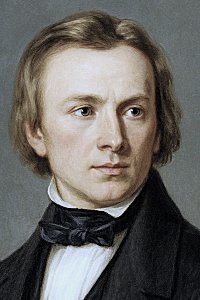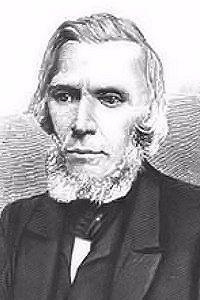Introduction

Born: June 4, 1808, Mount Holly, New Jersey.
Died: October 9, 1868, Philadelphia, Pennsylvania.
Buried: Mount Moriah Cemetery, Philadelphia, Pennsylvania.


Born: June 4, 1808, Mount Holly, New Jersey.
Died: October 9, 1868, Philadelphia, Pennsylvania.
Buried: Mount Moriah Cemetery, Philadelphia, Pennsylvania.

Thomas was the son of William Smith Stockton and Elizabeth Sophia Hewlings, and husband of Anna Roe McCurdy (married February 1828).
Educated mostly in private schools, he studied medicine for a time, then spent five years in literary pursuits.
The Methodist Protestant denomination admitted Stockton into the Maryland Annual Conference, and he became one of the most eloquent preachers of 19th Century America.
Stockton served as chaplain for the United States House of Representatives three times. During his last tenure (July 4, 1861–December 7, 1863), he gave the opening prayer at the dedication of the Soldier’s National Cemetery in Gettysburg, Pennsylvania, November 19, 1863.
This was the occasion when President Abraham Lincoln gave his Gettysburg Address. Lincoln said he had never heard such an utterance from mortal lips as Stockton’s prayer at this dedication.
Stockton compiled the 1837 Methodist Protestant Hymn-Book, the first Methodist hymnal to show hymn authors’ names.
In addition to numerous sermons and speeches, his other works include:
O God our Father, for the sake of Thy Son our Saviour, inspire us with Thy Spirit, and sanctify us to the right fulfillment of the duties of this occasion.
We come to dedicate this new historic centre as a National Cemetery. If all departments of the one Government which Thou hast ordained over our Union, and of the many Governments which Thou hast subordinated to our Union, be here represented; if all classes, relations, and interests of our blended brotherhood of people stand severally and thoroughly apparent in Thy presence; we trust that it is because Thou hast called us, that Thy blessing awaits us, and that Thy designs may be embodied in practical results of incalculable and imperishable good.
And so, with Thy holy Apostle, and with the Church of all lands and ages; we unite in the ascription: Blessed be God, even the Father of our Lord Jesus Christ, the Father of mercies, and the God of all comfort, who comforteth us in all our tribulation, that we may be able to comfort them which are in any trouble, by the comfort wherewith we ourselves are comforted of God.
In emulation of all angels, in fellowship with all saints, and in sympathy with all sufferers; in remembrance of Thy works, in reverence of Thy ways, and in accordance with Thy word; we laud and magnify Thine infinite perfections. Thy creative glory. Thy redeeming grace, Thy providential goodness, and the progressively richer and fairer developments of Thy supreme, universal, and everlasting administration.
In behalf of all humanity, whose ideal is divine, whose first memory is Thine image lost, and whose last hope is Thine image restored; and especially of our own nation, whose history has been so favored, whose position is so peerless, whose mission is so sublime, and whose future is so attractive; we thank Thee for the unspeakable patience of Thy compassion and the exceeding greatness of Thy loving-kindness.
In contemplation of Eden, Calvary, and Heaven; of Christ in the Garden, on the Cross, and on the Throne; nay, more, of Christ as coming again in all-subduing power and glory; we gratefully prolong our homage.
By this Altar of Sacrifice, on this Field of Deliverance, on this Mount of Salvation, within the fiery and bloody line of these munitions of rocks,
looking back to the dark days of fear and trembling, and to the rapture of relief that came after; we multiply our thanksgivings, and confess our obligations to renew and perfect our personal and social consecration to Thy service and glory.
O, had it not been for God! For lo! our enemies they came unresisted, multitudinous, mighty, flushed with victory, and sure of success. They exulted on our mountains, they reveled in our valleys; they feasted, they rested; they slept, they awaked; they grew stronger, prouder, bolder every day; they spread abroad, they concentrated here; they looked beyond this horizon to the stores of wealth, to the haunts of pleasure, and to the seats of power, in our Capital and chief Cities.
They prepared to cast the chain of Slavery around the form of Freedom, binding life and death together forever. Their premature triumph was the mockery of God and man. One more victory, and all was theirs!
But, behind these hills was heard the feebler march of a smaller but still pursuing host. Onward they hurried, day and night, for God and their country. Foot-sore, way-worn, hungry, thirsty, faint but not in heart, they came to dare all, to bear all, and to do all, that is possible to heroes. And Thou didst sustain them!
At first they met the blast on the plain, and bent before it, like the trees in a storm. But then, led by Thy hand to these hills, they took their stand upon the rooks and remained as firm and immovable as they.
In vain were they assaulted. All art, all violence, all desperation, failed to dislodge them. Baffled, bruised, broken, their enemies recoiled, retired, and disappeared.
Glory to God, for this rescue! But, O, the slain! In the freshness and fullness of their young and manly life; with such sweet memories of father and mother, brother and sister, wife and children, maiden and friends; they died for us.
From the coasts beneath the Eastern star, from the shores of Northern lakes and rivers, from the flowers of Western prairies, and from the homes of the Midway, and the Border, they came here to die for us and for mankind.
Alas, how little we can do for them! We come with the humility of prayer, with the pathetic eloquence of venerable wisdom, with the tender beauty of poetry, with the plaintive harmony of music, with the honest tribute of our Chief Magistrate, and with all this honorable attendance: but our best hope is in Thy blessing, O, Lord, our God!
O, Father, bless us! Bless the bereaved, whether present, or absent; bless our sick and wounded soldiers and sailors; bless all our rulers and people; bless our army and navy; bless the efforts for the suppression of the rebellion; and bless all the associations of this day, and place, and scene, forever.
As the trees are not dead, though their foliage is gone, so our heroes are not dead, though their forms have fallen. In their proper personality, they are all with Thee. And the spirit of their example is here. It fills the air, it fills our hearts.
And, long as time shall last, it will hover in these skies, and rest on this landscape; and the pilgrims of our own land, and from all lands, will thrill with its inspiration and increase and confirm their devotion to liberty, religion and God.
Our Father, who art in heaven, hallowed be Thy name. Thy kingdom come. Thy will be done on earth as it is in heaven. Give us this day our daily bread, and forgive us our debts, as we forgive our debtors. Lead us not into temptation, but deliver us from evil; for Thine is the kingdom, the power, and the glory, for ever. Amen.
Thomas Hewlings Stockton (1808–1868), Chaplain, United States House of Representatives